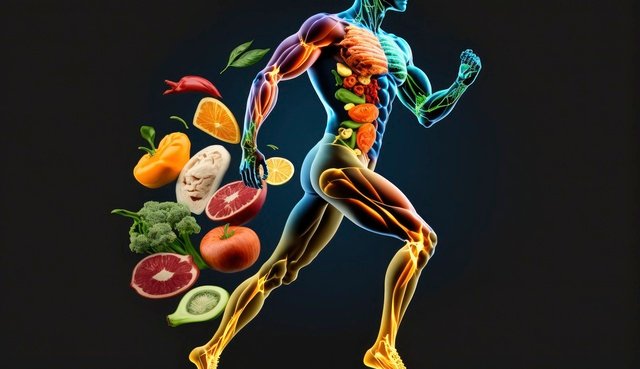Is intermittent fasting good for runners? While intermittent fasting has gained popularity for weight loss and metabolic health, it’s not necessarily ideal for runners. Scientific evidence shows that while short-term fasting may help reduce fat while preserving muscle, it can negatively impact performance, energy levels, and recovery, especially for endurance athletes.
Does fasting apply to runners? Let’s look at it in the article.
A new dietetics trend is based on intermittent fasting. Fashionable nutrition trends have also penetrated the sports environment. The peculiarity is that you need to monitor the time of food intake and not its quantity and quality.
Nutritionists claim that fasting helps reduce weight while maintaining muscle mass; the diet also normalizes metabolism and helps improve other physiological indicators.
Does this nutrition model apply to runners? Each person has physiological characteristics, a certain body type, and a level of health, so different diets entail different consequences.
Some do not adhere to proper nutrition, which does not prevent them from remaining full of strength and energy throughout their lives. For some, life comes down to finding a suitable diet that suits the body’s characteristics. So, what works for one may negatively impact another.

Three Intermittent Fasting Schemes
Intermittent fasting, as a unified nutrition system, cannot be described in a general way since there are three food intake patterns.
It is based on specific periods of fasting throughout the day or week.
- “2 through 5” scheme. According to this scheme, you need to reduce your calorie intake 2 days a week, and on the remaining days, you eat your usual diet.
- Fasting day. A scheme in which a day when you need to limit your food intake alternates with a regular day.
- Fasting during the day. According to this scheme, limiting calorie intake during the day alternates with usual meals. A popular scheme involves fasting for 16 hours. During the remaining 8 hours, you can eat unlimitedly. It is allowed to increase the fasting period to 20 hours, and then the meal time will be reduced to 4 hours.
It is believed that intermittent fasting is an easy diet since you control what you eat and the time when you eat, which is much easier.
Intermittent fasting, one way or another, is based on limiting calorie intake.
Thus, nutritionists claim that during fasting, fats are burned, but muscle mass remains the same.
Scientific Research on Intermittent Fasting
Statistics from 2018 on the use of intermittent fasting as a diet for obese people prove that weight loss only occurs if you continually reduce calories.
Other scientific sources confirm these data. Recently, the results of all studies were combined and analyzed. Scientists have concluded that people who practice intermittent fasting experience much faster weight loss and a decreased waist size.
Therefore, following this diet, fat mass is lost, but muscle mass remains the same. However, it is worth noting that statistics contain overview data for up to six months.
Only the 2016 review includes figures from the study, which lasted 6-12 months. Observing the subjects further, weight loss continued, but it was less significant than at the beginning of fasting.
If participants continue to adhere to the fasting pattern for longer, their weight gradually returns. Studies show that only short-term fasting results in weight loss and preservation of muscle mass, but this effect is almost leveled out in the long term.
Negative Effects of Intermittent Fasting on the Body
Intermittent fasting, like any diet, has hidden positive and negative sides. A deliberate reduction in the quantity and quality of food can lead to physical, psychological, and even social disorders.
Firstly, there are few practical studies of the direct relationship between intermittent fasting and running performance, but they still exist and are indicative. The experiment was carried out on athletes who observed the Ramadan fast; the numbers proved the negative impact of diet on running, and the performance indicators decreased.
Still, more energy needs to be produced during training, produced only by burning fat; carbohydrates in many foods are also required.
Secondly, a person is limited in the time he eats. We have to ignore the body’s biological needs; that is, a person is forced to starve when he wants to eat. A starving person will likely indiscriminately grab food at a time when it is permissible, which will inevitably lead to overeating.
Thirdly, additional restrictions on certain foods during the non-fasting period, for example, due to health reasons, affect the decrease in nutritional quality.
Fourthly, consuming too much food in a short time can lead to digestive system diseases.
Fifthly, the time limit for eating makes it almost impossible to take part in social events where buffets and feasts are provided, which can lead to psychological disorders and negatively affect a person’s social life.
What Does Intermittent Fasting Lead To?
Intermittent fasting is presented as a gentle eating model, but it is still a diet with certain specific pros and cons. Statistics from studies of other diets over time show that people eventually return to their original weight and even gain more.
Periodic weight loss and gain negatively affect physical and psychological health. This is detrimental to runners who need a lot of energy to train, and fasting is almost impossible to incorporate into the training process.
Thus, food restriction does not improve running performance but rather worsens it. Thus, the diet is not suitable for everyone, but is good for short-term weight loss.




